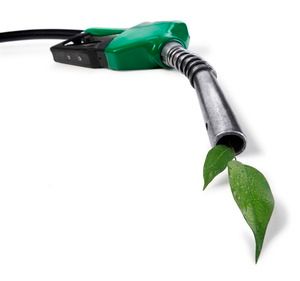NREL publishes assessment of BQ-9000 biodiesel properties for 2023

July 19, 2024
BY Clean Fuels Alliance America
The National Renewable Energy Laboratory released the seventh in a series of reports documenting the quality of biodiesel from U.S.- and Canadian-based producers that participate in the BQ-9000 program. The comprehensive report, authored by Robert L. McCormick, details the quality of biodiesel based on monthly data collected throughout the calendar year 2023.
The BQ-9000 program, a voluntary quality assurance initiative within the biodiesel industry, continues to play a critical role in ensuring high standards of biodiesel production. The 2023 report features significant advancements highlighting new parameters that offer a more comprehensive analysis on biodiesel quality and mineral content. New data includes kinematic viscosity, sulfated ash, distillation temperature, carbon residue, and cetane number, as well as individual levels of sodium, potassium, calcium and magnesium levels.
Advertisement
Quality data was provided by BQ-9000 participants to a team of experts who anonymized the data before it was submitted to NREL for statistical analysis, ensuring the confidentiality of the participating producers.
“The BQ-9000 program’s commitment to quality assurance is evident in the continued improvement and expansion of the parameters we assess,” said Scott Fenwick, Technical Director at Clean Fuels Alliance America. “This year’s report not only reinforces the high standards maintained by biodiesel producers but also provides valuable insights that can drive further advancements in the industry.”
Advertisement
NREL remains dedicated to supporting the biodiesel industry through rigorous analysis and dissemination of quality data. The full report, “Assessment of BQ-9000 Biodiesel Properties for 2023,” is available for download on NREL’s official website.
Related Stories
More than 1.76 billion renewable identification numbers (RINs) were generated under the Renewable Fuel Standard in January, down from 1.91 billion generated during the same period of 2024, according to data released by the U.S. EPA on Feb. 20.
The U.S. EPA on Feb. 20 released updated small refinery exemption (SRE) data showing that 13 previously denied SRE petitions for Renewable Fuel Standard compliance years 2021 and 2022 are being reconsidered. No new SRE petitions were filed.
OMV Petrom has announced the start of construction for a sustainable aviation fuel (SAF) and renewable diesel (HVO) production unit at the Petrobrazi refinery in Romania. The new facility will have an annual capacity of 250,000 tons.
CVR pauses development of potential SAF projects pending regulatory, tax credit clarity
CVR Energy Inc. released fourth quarter financial results on Feb. 18, reporting reduced renewable diesel production. The company also said it is pausing development of SAF capacity pending clarity on government subsidies.
The U.S. EIA reduced its forecast for 2025 biodiesel production in its latest Short-Term Energy Outlook, released Feb. 11. The forecasts for renewable diesel production and the production of other biofuels, including SAF, were maintained.
Upcoming Events










